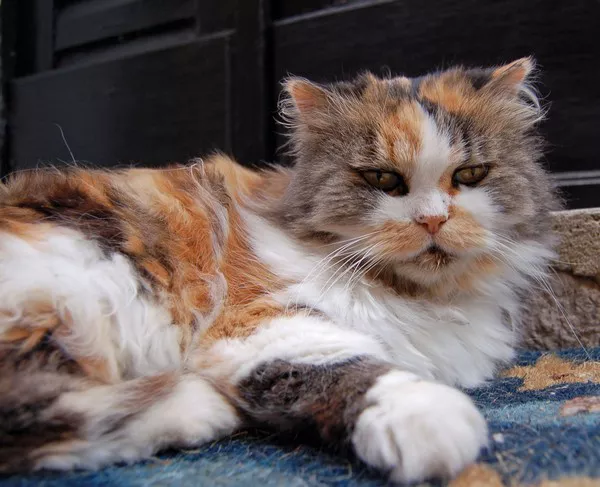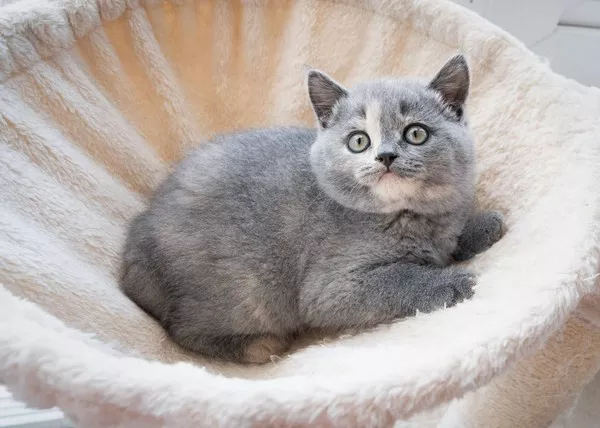British Shorthair cats are a popular breed known for their affectionate and laid-back personalities. However, like all cats, they are prone to certain health problems that owners should be aware of. In this article, we will discuss the most common health problems in British Shorthair cats and provide information on how to prevent and treat these conditions.
Hypertrophic Cardiomyopathy
Hypertrophic cardiomyopathy (HCM) is a condition that affects the heart muscle, causing it to thicken and become less flexible.
This can lead to a range of symptoms, including lethargy, difficulty breathing, and sudden collapse.
HCM is a genetic condition that is common in British Shorthair cats, as well as other breeds such as Maine Coons and Ragdolls.
While there is no cure for HCM, early detection and treatment can help manage the symptoms and improve your cat’s quality of life.
Treatment options may include medication to manage symptoms, such as diuretics to reduce fluid buildup in the lungs, and surgery to remove excess tissue from the heart.
Regular check-ups with your veterinarian and routine heart screenings can help detect HCM early, before it progresses to a more severe stage.
Polycystic Kidney Disease
Polycystic kidney disease (PKD) is a genetic condition that affects the kidneys, causing cysts to form on the surface of the organ.
Over time, these cysts can grow and cause the kidneys to lose function, leading to kidney failure and other complications.
PKD is common in British Shorthair cats, as well as other breeds such as Persians and Himalayans.
Symptoms of PKD may include increased thirst and urination, weight loss, and lethargy. While there is no cure for PKD, early detection and treatment can help manage the symptoms and slow the progression of the disease.
Treatment options may include medications to manage symptoms, as well as dietary changes to support kidney function. Regular check-ups with your veterinarian and routine kidney screenings can help detect PKD early.
Obesity
Obesity is a common health problem in British Shorthair cats, as well as other breeds.
This condition is caused by a combination of factors, including overfeeding, lack of exercise, and genetic predisposition.
Obesity can lead to a range of health problems, including diabetes, heart disease, and joint problems.
To prevent obesity, owners should feed their cats a balanced diet that is appropriate for their age, weight, and activity level.
This may include a combination of wet and dry food, as well as portion control to prevent overfeeding.
Owners should also provide regular exercise, such as playtime or indoor climbing structures, to help their cats maintain a healthy weight.
Regular monitoring of your cat’s weight and body condition can help detect obesity early and prevent complications.
Dental Disease
Dental disease is a common health problem in British Shorthair cats, as well as other breeds.
This condition is caused by a buildup of plaque and tartar on the teeth, which can lead to gum disease, tooth decay, and other complications.
Symptoms of dental disease may include bad breath, swollen gums, and difficulty eating.
To prevent dental disease, owners should provide regular dental care for their cats, including brushing their teeth with a cat-specific toothpaste and toothbrush, and providing dental treats and toys.
Regular dental cleanings by a veterinarian may also be necessary to remove stubborn plaque and tartar buildup.
Early detection and treatment of dental disease can help prevent complications and improve your cat’s overall health.
Upper Respiratory Infections
Upper respiratory infections (URIs) are a common health problem in British Shorthair cats, as well as other breeds.
URIs are caused by a range of viruses and bacteria, including feline herpesvirus, calicivirus, and chlamydia. These viruses and bacteria can be spread through contact with infected cats, as well as through contaminated objects such as food bowls and litter boxes.
Symptoms of URIs in cats may include sneezing, coughing, runny nose, and watery eyes. Cats may also experience a loss of appetite, lethargy, and fever.
While most URIs are mild and resolve on their own within a week or two, severe cases can lead to complications such as pneumonia.
To prevent URIs, owners should ensure their cat is up-to-date on their vaccinations, including the FVRCP vaccine, which protects against feline herpesvirus, calicivirus, and panleukopenia.
Owners should also provide a clean and stress-free environment for their cats, with regular cleaning of food bowls, litter boxes, and bedding.
If your cat develops symptoms of a URI, it is important to seek veterinary care. Treatment options may include antibiotics or antiviral medications, as well as supportive care such as fluids and rest.
In severe cases, hospitalization may be necessary to monitor your cat’s condition and provide intensive care.
In addition to vaccination and environmental management, there are other steps owners can take to help prevent URIs in their cats.
These include regular grooming to keep their cat’s coat and skin healthy, as well as providing a balanced diet and regular exercise to support overall health and immunity.
Regular check-ups with a veterinarian can also help detect and treat URIs early, before they progress to a more severe stage. By taking these steps, owners can help keep their British Shorthair cat healthy and happy.
Conclusion
British Shorthair cats are prone to several health problems that owners should be aware of. Regular check-ups with your veterinarian and routine screenings can help detect these conditions early and improve your cat’s quality of life. By providing a balanced diet, regular exercise, and proper dental care, owners can help prevent and manage these health problems and ensure their British Shorthair cat lives a happy and healthy life.
Related Topics



























